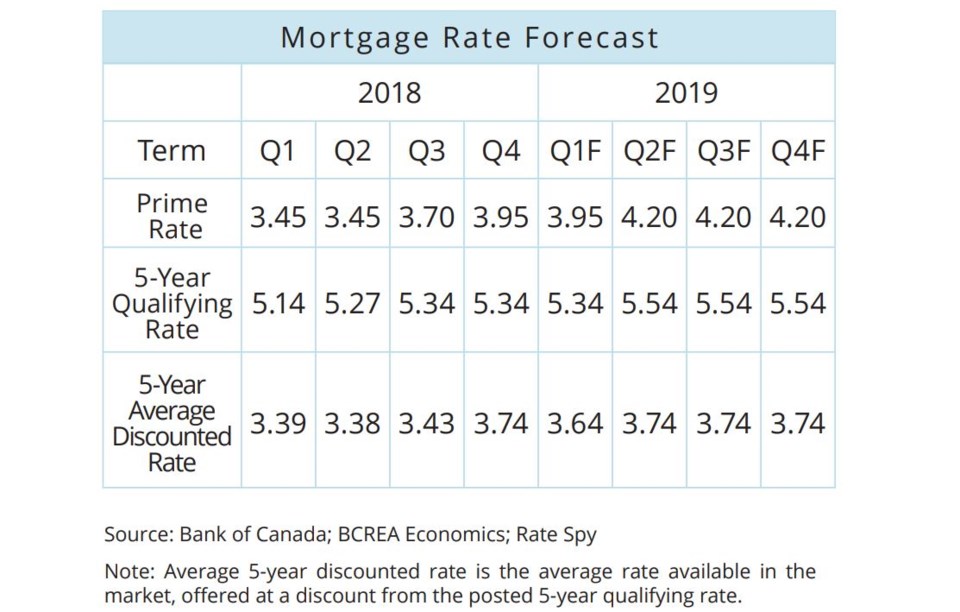Canadians may be , but those applying for new fixed-rate mortgages are likely to have a breather for a year, according to a new economic forecast.
In its latest , the B.C. Real Estate Association’s economists are predicting that the average five-year fixed rate being offered by lenders will remain flat in 2019 – even slightly declining, to 3.64 per cent, in the first quarter before going back up to the current 3.74 per cent in Q2.
In their report, BCREA economists Cameron Muir and Brendon Ogmundson wrote that declining government bond yields – which dictate fixed-rate mortgages – combined with impact of the federal mortgage stress test, are the reason for this change in expectations.
The authors wrote, “Declining oil prices, the stronger than expected impact of the B20 mortgage stress test and generally soft economic data in recent weeks have prompted a swift change in market sentiment. Since early November, the 5-year bond yield has dropped close to 50 basis points back to levels last seen in June, prior to two rate hikes by the Bank of Canada.”
The stress test, which applies to all mortgage applications, requires that borrowers qualify on their income as if they were paying the Bank of Canada posted interest rate, or their agreed contract repayment rate plus two per cent, whichever is the higher. The BCREA observed that even though the Bank of Canada posted rate has only increased by 20 basis points this year, to 5.34 per cent, most lenders have raised their discounted contract rates by more than that amount. The average five-year fixed rate is currently 3.74 per cent, which is up 35 basis points from Q1 2018. That means the average fixed-rate mortgage applicant now has to qualify at 5.74 per cent.

The BCREA said, “It is unclear if borrowers can bear further mortgage rate increases, with growth in mortgage credit already approaching record lows.”
Fixed-rate mortgages make up about 80 per cent of Canadian mortgages – but for variable rate borrowers, it’s a different story. The BCREA is expecting that the Bank of Canada will continue to increase its overnight target rate, from the current 1.75 per cent to 2.5 per cent, over the course of 2019 and 2020, with two jumps in 2019. This will variable-rate mortgages by a similar amount. However, it added a caveat that if the oil shock in Alberta is prolonged, the federal bank may not raise the overnight rate at all until 2020.
The BCREA has for the slowing housing market squarely at the feet of the mortgage stress test, which has reduced many buyers’ purchasing power by as much as 20 per cent.
Members of Canada’s building industry for a reduction or even a full repeal of the mortgage stress test, saying that the program had “a very targeted outcome” that has “been achieved, so it’s overkill now.”
The BCREA’s 2019 mortgage forecast was released the day before the Canada Mortgage and Housing Corporation that found Metro Vancouver residents have the highest household debt ratios in the country and are the most vulnerable to interest rate hikes.




